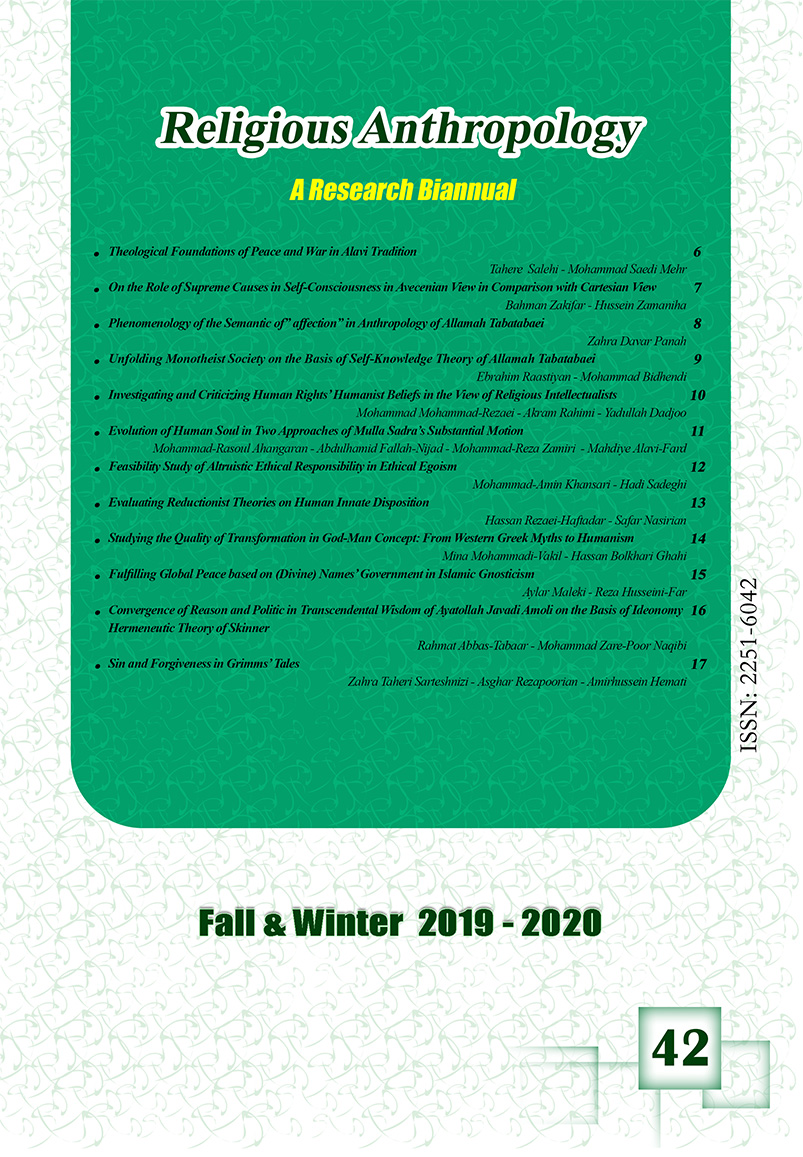Evaluating Reductionist Theories on Human Innate Disposition
Document Type : Research Paper
Authors
1 Associate Profesor of Quran and Hadith, Tehran University, Farabi Campus
2 PhD of Instructing Islamic Teachings
10.22034/ra.2019.74509.2056
Abstract
Human innate disposition has been among fundamental issues in anthropology which has attracted thinkers in the long run of the history. Some of these thinkers have held positions in which human innate disposition suffers more limited boundaries. Affected by these positions, nowadays the boundaries of human innate disposition are reduced into the arena of axiomatic perceptions, intuitive cognition, soul faculties and instincts. Reducing human innate disposition into axiomatic perceptions rejects human original innate disposition in contrast with human secondary innate disposition. Besides, reducing innate disposition into intuitive cognition reduces boundaries of disposition even more than its previous type. Accordingly, even axiomatic perceptions are beyond the boundaries of innate disposition. These two recent interpretations of human innate disposition, yet, reduce the disposition into human instincts and faculties of soul. The first interpretation rejects every kinds of innate actual perception even after the birth and therefore, it is believed that all human perceptions are acquired. The second interpretation, however, touched by the theory of evolution, reduces innate disposition into instincts, either carnal or vital. According to religious thought none of these stances have given an accurate representation of innate disposition. In religious view Man possess different dimensions of innate disposition. In this sense, original disposition, axiomatic disposition and innate faculties are different dimension of human innate disposition (Fitra).
Keywords
